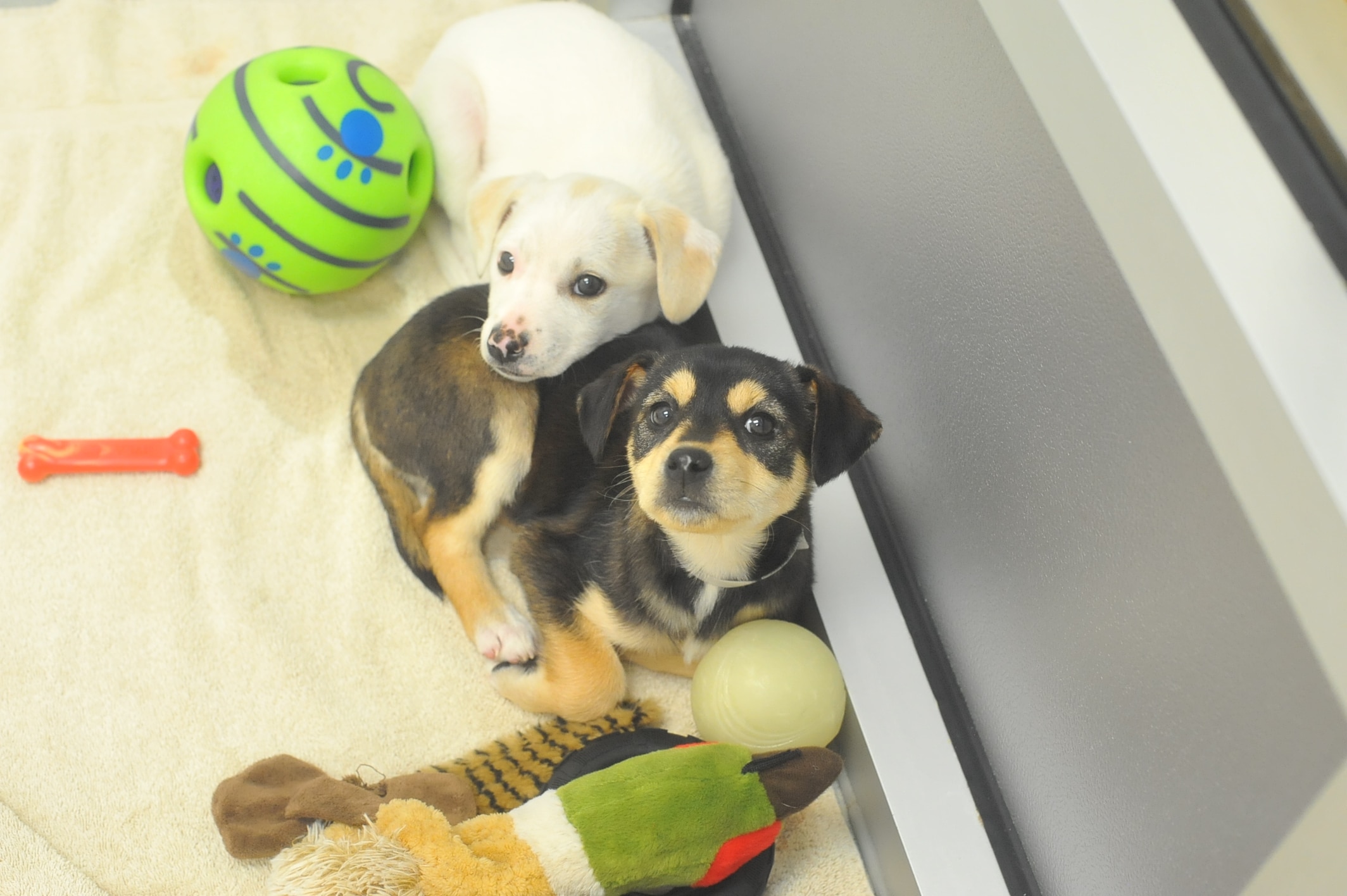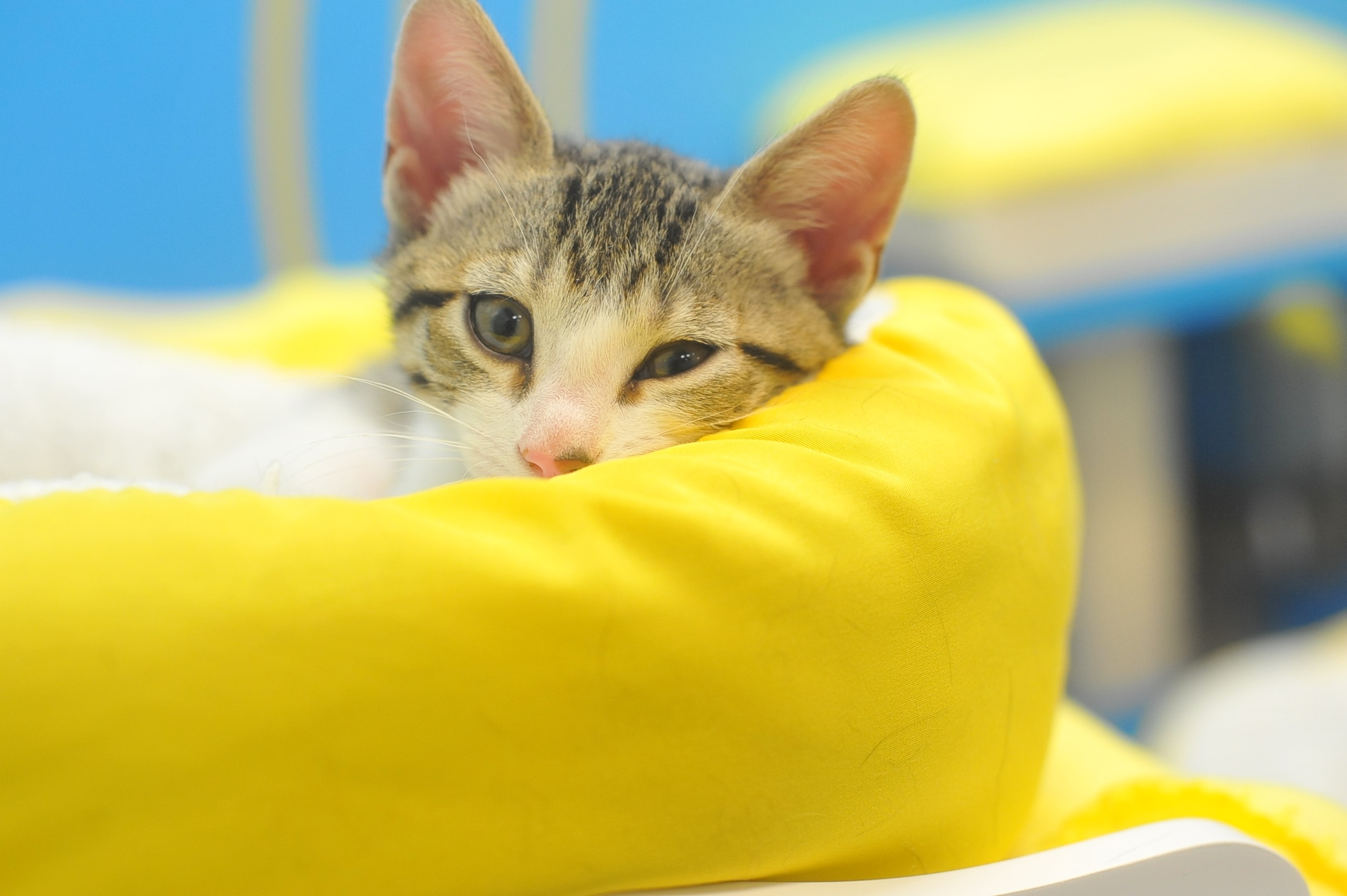Become part of the Todd B. Richter Foster Program today!
Working from home or have some extra time and love to give? Bideawee is looking for foster families on Long Island and NYC who are willing to temporarily care for a dog or cat who is not yet ready for adoption, and provide that animal with the love and attention it needs to prepare for his or her future forever home. Bideawee's foster volunteers provide safe, loving, temporary homes to vulnerable dogs and cats during the most critical time in their lives. Every animal fostered makes room for another animal to be rescued and brought to the safety of our Adoption Centers. Apply now to learn more about current foster opportunities with Bideawee in NYC and Long Island.
Show your Support
Donate to support the Todd B. Richter Foster Program today!
Fosters needed on Long Island!
We have an urgent need for foster volunteers near our Wantagh and Westhampton campus on Long Island! Please complete an application by clicking below if you are interested in providing a temporary home to a dog or cat in need.
Jacqueline and foster dog Nena
"I am in NYC without my family so having a fur companion especially during these pressing times has been the best gift I could have. I was trying to give back a little, but Nena has given me more than I will ever be able to provide for her."
Isaree with foster cat Nicka
"Nicka has been such a comfort to me during this crisis. Sitting with Nicka on my lap, petting her, and listening to her purrs always grounds me. She's a constant reminder that there's a lot of good in this world, despite the challenging time."
Frequently Asked Questions
Why do animals need foster care?
Most often, animals require foster care if they are too young to be adopted (including kittens and puppies that are under eight weeks old), if they are nursing with their litter, if they are orphaned and require bottle-feeding, if they are being treated for a medical condition or recovering from surgery, or if they have behavioral issues such as litter box avoidance, separation anxiety or are shy/under socialized.
Can I choose what types of pets I foster?
Yes. Foster volunteers can choose to foster dogs, cats, or both. Some volunteers just foster kittens or puppies, while others help with our more needy medical and behavioral cases. All foster assignments are voluntary; you will never be forced to take on an assignment.
How long do I keep the foster pet?
The length of each foster assignment will depend on the needs of the individual animal. The typical length of a foster assignment is 4 weeks. Young kittens and puppies stay in foster care until they are eight weeks old. Animals with behavioral or medical issues will stay in foster care until they are ready for adoption. During the foster period, animals may be required to come back to the shelter for medical check-ups and behavioral evaluations. In some cases, volunteers will keep the foster pets until we are able to place them up for adoption.
What are the risks of fostering shelter animals?
Shelter pets come from a variety of backgrounds, and it is often hard to gauge how they will behave in a home environment. While we will do our best to provide you with information on the pet’s medical and behavioral history, we cannot make any guarantees about how they will be in your home. We cannot guarantee that a foster pet will be house-broken or litter box trained, or if he will be destructive if left alone.
Can I return my foster to Bideawee if I am unable to foster any longer?
We prefer that foster parents continue to foster until it’s time for the pet to be returned and be put up for adoption. However, we understand that situations change and it may be necessary to discontinue fostering. We request that a foster parent provides as much notice as possible (minimum 1 week) so that we can find an alternative foster home to transfer the pet to. Of course, in an emergency, a foster parent may always bring their foster pet back as needed. In such cases, contact the Foster Team immediately.
What do I do if my foster animal becomes sick or injured?
Foster volunteers are responsible for monitoring foster pets on a daily basis for any sign of illness or injury. We ask that you call Bideawee immediately if you notice anything “unusual” with your foster animal. Please keep your Foster Care Management Contact Information sheet handy for easy reference.
Our medical staff will be available to see foster animals that become sick or injured during their foster stay. In some cases, volunteers may be asked to administer medication at home, or animals may have to stay at the shelter for hospitalization until they are well. For after-hours emergencies, volunteers are able to use the services of local 24-hour veterinary emergency clinics.
What if I want to adopt my foster pet?
If the foster caregiver is interested in adopting one of their foster pets they should inform the foster team immediately. At that point the foster care management team will guide the foster caregiver though the process of adopting their four-legged companion.
Am I responsible for finding a home for my foster pet?
No. Foster pets must be returned to Bideawee at the end of their foster period. Once they are cleared for adoption, we will advertise them as “available” and place them in an appropriate home. All potential adopters must be approved by our adoption counselor through our adoption application and interview process. We ask that if volunteers find a home for the animal to please have the individual accompany you to Bideawee at the end of your foster care assignment.
We also ask volunteers to help us to advertise their foster pets by providing high-quality photos for use to showcase in their file and on our website.
Can I foster if I work full time?
Yes. Many of our foster volunteers have full-time jobs, and most foster pets can be left alone for up to eight hours at a time. We provide a crate or cattery for your foster pet to be kept in when they are not being supervised. However, some animals, such as bottle-feeding infants, and under-socialized and sick animals cannot be left for extended periods of time. They will be fostered by volunteers that are able to accommodate their needs. Foster pets do require an adequate amount of human socialization; at least two hours a day of time spent socializing your foster animal(s) is recommended.
Can I foster if I have other pets at home?
Yes. Most of our foster volunteers have pets of their own. You will want to have a separate area (such as a spare bedroom), in which to keep your foster pet(s). Although foster pets receive a medical examination before leaving the shelter, we cannot guarantee that they are not harboring a contagious illness. Volunteers with their own pets can reduce some of the risks of fostering pets by keeping your own pets up to date on their vaccines, and by keeping foster pets separated from other animals in the household. If your pet is elderly, sick, or has a weakened immune system, please consult with your private vet about the safety of fostering with your existing pet.
Can I foster if I have children?
Yes. Fostering is a great way for children to learn about caring for animals and giving back to the community. All foster care applicants must be 20 years old or be supervised by an adult guardian, but children can participate in foster care with their parents. Some animals are not appropriate for homes with children, and we will do our best to make sure to send you home with appropriate foster animals based on the age of the youngest child in your household. While children can participate in the care of foster animals, young children should never be left alone with any animals.
Does Bideawee provide the supplies?
Yes!


Contact Us
Foster Inquiries:
[email protected]
